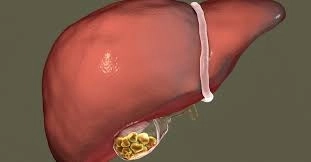
Elevated Liver Enzymes With Dr. Khaled Mohamed Ahmed
Published on: 2025-07-01 | Written by: Dr. Khaled Mohamed Ahmed, Consultant in Internal
Elevated liver enzymes are often an early indicator of an underlying health issue, whether in the liver itself or other organs related to its function. Sometimes, these abnormalities are discovered incidentally during routine blood tests.
Dr. Khaled Mohamed Ahmed, Consultant in Internal Medicine, explains that interpreting liver enzyme results requires a thorough understanding of the patient’s medical history and associated symptoms to reach an accurate diagnosis.
What Are Liver Enzymes?
Liver enzymes are proteins that help the liver carry out its essential functions. The most common ones include:
-
ALT (Alanine Transaminase)
-
AST (Aspartate Transaminase)
-
ALP (Alkaline Phosphatase)
-
GGT (Gamma-Glutamyl Transferase)
According to Dr. Khaled Mohamed Ahmed, elevated enzyme levels typically indicate inflammation or damage to liver cells.
Common Causes of Elevated Liver Enzymes
Dr. Khaled Mohamed Ahmed highlights the most frequent causes:
-
Fatty liver disease (non-alcoholic steatohepatitis – NASH)
-
Viral hepatitis (types B and C)
-
Medication side effects, including painkillers or antibiotics
-
Alcohol consumption or use of harmful herbal supplements
-
Diabetes and high cholesterol
-
Autoimmune or chronic inflammatory diseases
Does Elevation Always Mean Something Serious?
Not necessarily. Dr. Khaled Mohamed Ahmed notes that while some cases are temporary and benign, ignoring elevated liver enzymes can allow underlying conditions to worsen.
In some instances, levels return to normal once the root cause—such as a medication—is addressed or dietary habits are improved.
How Is the Condition Diagnosed?
To determine the exact cause, the doctor may recommend:
-
A full review of the patient’s medical and family history
-
A physical examination
-
Additional blood tests (full liver function panel, hepatitis screening)
-
Ultrasound or other imaging
-
In some cases, a CT scan or liver biopsy
Dr. Khaled Mohamed Ahmed stresses the importance of regular follow-ups, especially if liver enzyme levels remain elevated or rise significantly.
Can Liver Enzymes Be Lowered?
Yes—and the treatment depends on the underlying cause. General advice from Dr. Khaled Mohamed Ahmed includes:
-
Reducing intake of fats and sugars
-
Avoiding alcohol completely
-
Losing excess weight
-
Avoiding over-the-counter medications that burden the liver
-
Treating the primary condition (e.g., viral hepatitis)
Conclusion
Elevated liver enzymes should never be ignored—they are often early warning signs of hidden liver dysfunction.
Dr. Khaled Mohamed Ahmed emphasizes that early diagnosis and ongoing monitoring are key to preventing long-term complications and maintaining liver health.

